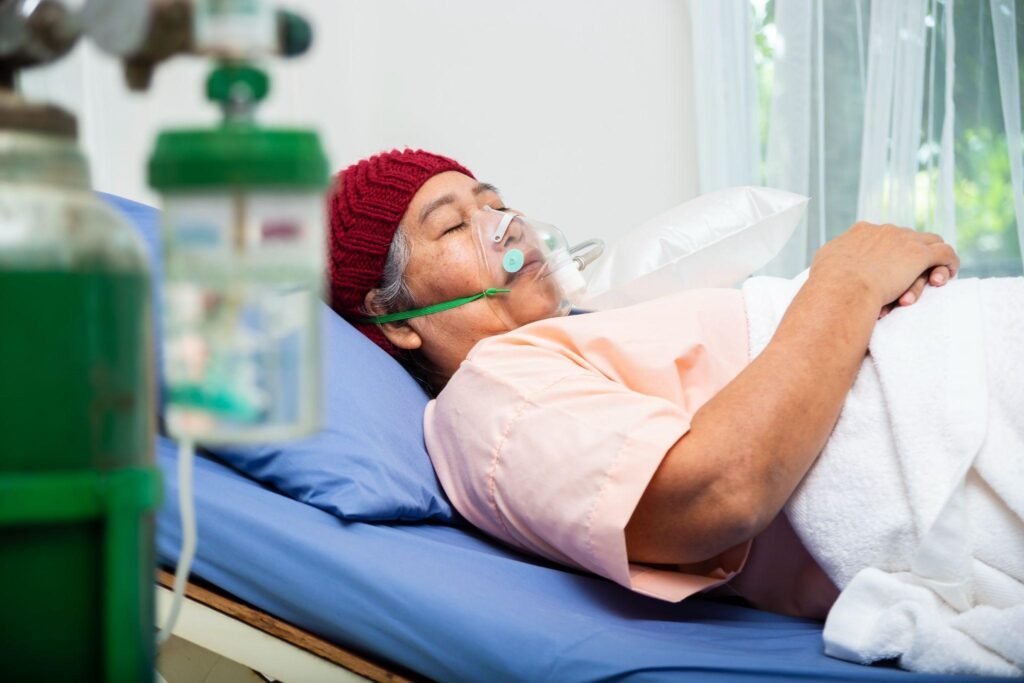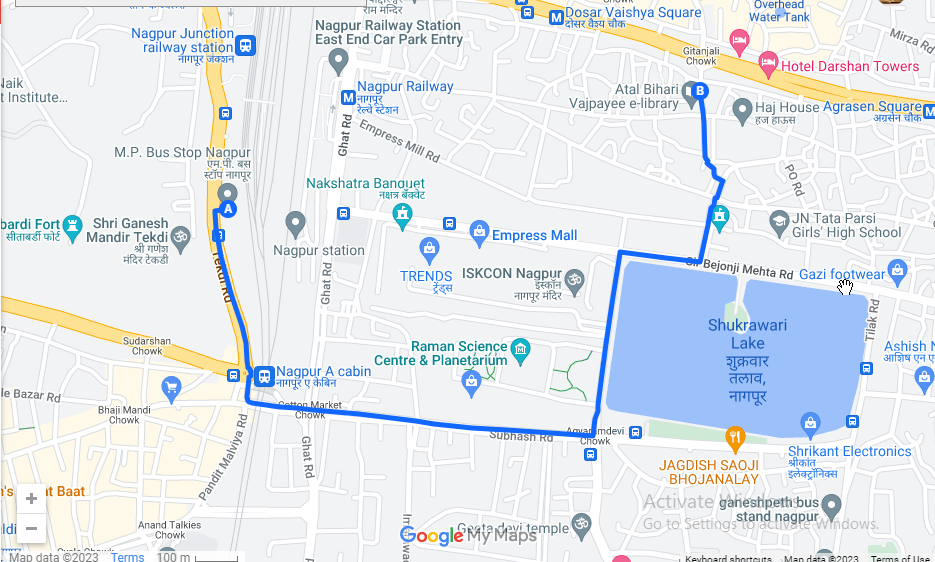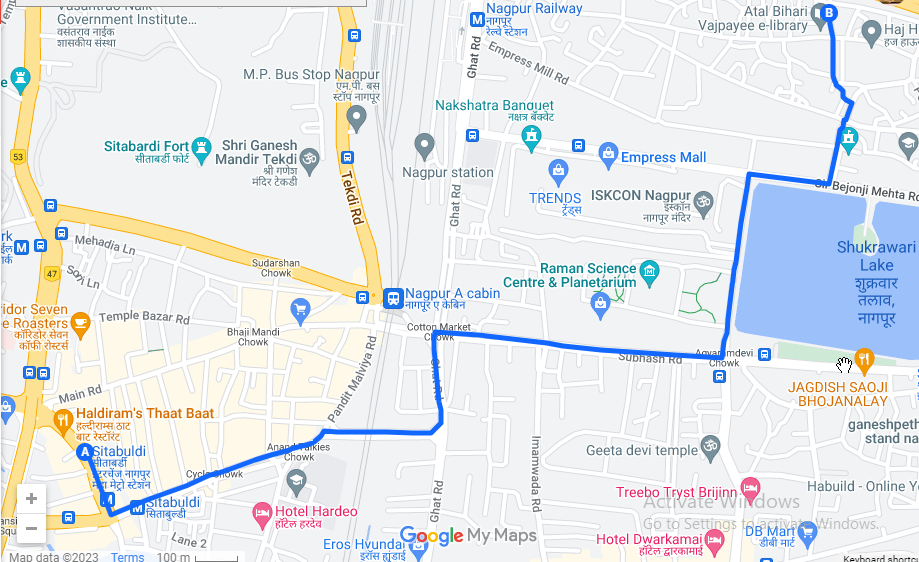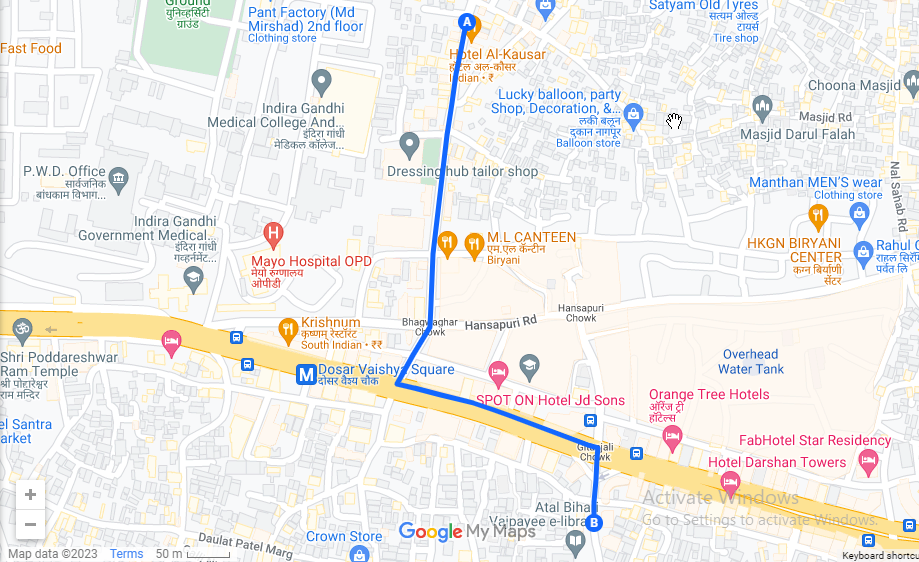Sleep apnea involves breathing interruptions during sleep due to relaxed throat muscles or blocked airways, leading to disrupted sleep and reduced oxygen intake. Dr. Darakshan Parveen, a renowned Sleep Apnea Specialist with 17+ years of experience, employs advanced techniques to enhance patients’ sleep quality and overall health.

DR. DARAKSHAN PARVEEN
ENT SURGEON
Qualification:
- Qualified from the Government Medical College Agra.
- Postgraduate training in Otorhinolaryngology-Head and Neck Surgery from government medical college Meerut
Experience:
- Over 17 years of experience
- Visting consultant at HCG NCHRI Hospital and Crescent Hospital
The nearest public transport station to Dr. Darakshan’s Clinic:
Nearby Bus Stop
- Gitanjali Square: 130 meters away from Dr Darakshan’s Clinic
- Seva Sadan Bhavan: 350 meters away from Dr Darakshan’s Clinic
Nearby Metro Station
- Dosar Bhawan Metro Station: 350 meters away from Dr Darakshan’s Clinic
- Agrasen metro station: 600 meters away from Dr Darakshan’s Clinic
- Meyo Hospital Metro Station: 550 meters away from Dr Darakshan’s Clinic
What is sleep apnea?
Sleep apnea is a sleep disorder marked by recurrent breathing interruptions, called apneas, lasting seconds to minutes, and occurring multiple times per hour. Obstructive sleep apnea (OSA) is common, caused by relaxed throat muscles blocking the airway, while central sleep apnea (CSA) results from brain signaling failures. Complex sleep apnea combines OSA and CSA. Symptoms include snoring, awakenings, daytime sleepiness, and concentration issues.

Who does sleep apnea affect?
Sleep apnea can affect individuals of all ages, including children, but it is more commonly diagnosed in adults. Men are generally more prone to sleep apnea than women, although women’s risk increases after menopause. People who are overweight or obese, smokers and those with a family history of sleep apnea are at a higher risk. Additionally, individuals with nasal congestion, allergies, or a deviated septum, as well as those with certain medical conditions like hypertension and diabetes, have an elevated likelihood of experiencing sleep apnea. Alcohol and sedative use can also relax throat muscles, contributing to breathing obstructions during sleep.
Symptoms and Causes
What are the symptoms of sleep apnea?
Sleep apnea can exhibit a variety of symptoms, which may vary in severity. Common signs and symptoms of sleep apnea include:
Loud and chronic snoring: Especially if accompanied by gasping or choking sounds during sleep.
Morning headaches: Due to reduced oxygen levels during sleep.
Irritability and mood changes: Resulting from poor sleep quality.
Difficulty concentrating: Impaired focus and memory due to disrupted sleep.
Frequent nighttime urination: Disrupted sleep leads to more trips to the bathroom.
Dry mouth or sore throat: Morning dryness or irritation may occur.
Decreased libido: Reduced interest in sexual activity due to fatigue.
Restless sleep: Tossing and turning, accompanied by a feeling of unrest during sleep.
It’s important to note that not everyone with sleep apnea will exhibit all of these symptoms, and some individuals may not be aware of their symptoms, especially if the condition is mild. If sleep apnea is suspected, a medical evaluation is necessary for proper diagnosis and treatment.
What causes sleep apnea?
Sleep apnea occurs when the muscles and tissues in the throat relax excessively during sleep, causing the airway to become partially or completely blocked. Several factors and conditions can contribute to the development of sleep apnea, including:
Obesity: Excess weight, especially around the neck, can put pressure on the airway, leading to obstruction during sleep.
Age: Sleep apnea becomes more common as people age, likely due to changes in muscle tone and increased fat deposits in the throat.
Genetics: A family history of sleep apnea can increase the likelihood of developing the condition.
Nasal Congestion: Conditions like allergies, sinus problems, or a deviated septum can block nasal passages, contributing to breathing difficulties during sleep.
Smoking: Smoking causes inflammation and fluid retention in the airway, worsening obstructive sleep apnea.
Medical Conditions: Certain conditions, including obesity, hypertension, diabetes, and heart disorders, are associated with a higher risk of sleep apnea.
Neuromuscular Disorders: Conditions that affect nerve and muscle control, such as Parkinson’s disease, can lead to sleep apnea.
Sleep Position: Sleeping on your back may cause the tongue and soft palate to collapse to the back of the throat, blocking the airway.
Understanding and addressing these risk factors can be crucial in managing and preventing sleep apnea. Individuals experiencing symptoms or at risk should seek medical evaluation for proper diagnosis and treatment.
Types of Sleep Apnea
There are three main types of sleep apnea:
Obstructive Sleep Apnea (OSA): Caused by the relaxation of throat muscles, leading to blocked airways during sleep.
Central Sleep Apnea (CSA): Results from the brain’s failure to send proper signals to the muscles controlling breathing.
Complex Sleep Apnea Syndrome: Also known as treatment-emergent central sleep apnea, involves a combination of OSA and CSA.
How Is Sleep Apnea Treated?
Sleep apnea can be treated using various methods tailored to the severity and underlying causes of the condition. Common treatments include:
Continuous Positive Airway Pressure (CPAP) Therapy: A CPAP machine delivers a continuous flow of air, preventing airway collapse.
Bi-level Positive Airway Pressure (BiPAP) Therapy: Adjusts air pressure during inhalation and exhalation, offering more support.
Surgery: Surgical procedures can remove excess tissue, reposition the jaw, or address nasal obstructions.
Adaptive Servo-Ventilation (ASV): ASV devices adjust airflow based on individual breathing patterns.
Nasal Devices: Devices like nasal sprays or strips can help keep nasal passages open, reducing congestion.
Positional Therapy: Encourages sleeping in positions that prevent airway obstruction, suitable for position-dependent sleep apnea.
Neuromodulation Therapy: Involves stimulating the hypoglossal nerve to prevent airway collapse during sleep.
The choice of treatment depends on the specific diagnosis, patient preferences, and the advice of sleep apnea specialist. Treatment effectiveness is crucial for managing symptoms and improving overall quality of life.











